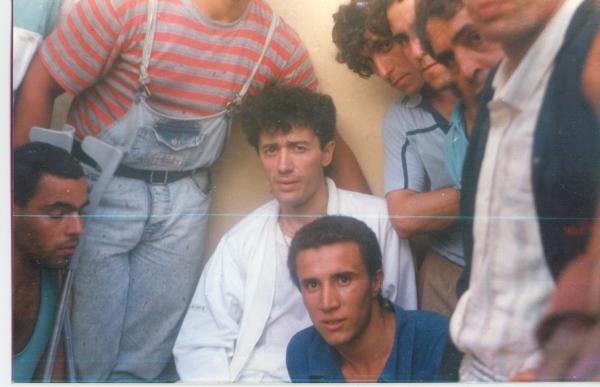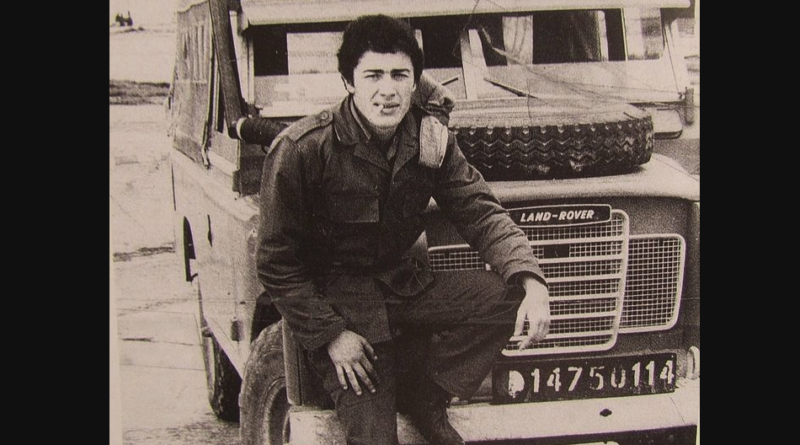The symbol of Kabayle struggle in Algeria
Lounès Matoub was a prominent figure in the world of Kabyle music and an outspoken advocate for the rights of the Amazigh people. Born on January 24, 1956, in the village of Taourirt Moussa in Algeria, Matoub was known for his powerful voice, poetic lyrics, and passionate performances.
Music career
Matoub’s interest in music began at an early age, and he learned to play the guitar as a teenager. He went on to form his first band, Les Abranis, in the 1970s, and the group quickly gained a following for their fusion of traditional Amazigh music with rock and roll.
Despite his success as a musician, Matoub was not content to simply entertain his audiences. He became increasingly involved in politics and became a vocal critic of the Algerian government, which he believed was neglecting the rights of the Amazigh/Kabayle people in Algeria.

Activism and Assassination
Matoub’s activism led to numerous clashes with the authorities, and he was frequently arrested and imprisoned for his outspoken views. In 1988, he was shot and left for dead by unknown assailants, an attack he survived but left him with lasting injuries.
Undeterred by the attack, Matoub continued to speak out against the Algerian government and became a symbol of resistance for the Kabayle people. His music became a powerful tool for expressing the struggles of his community, and he used his platform to call for greater autonomy and recognition for Amazigh culture.
Despite his popularity, Matoub remained a controversial figure in Algeria, and his concerts were frequently disrupted by authorities or attacked by extremist groups.
In 1998, he was abducted and murdered by unknown assailants, an act widely believed to be politically motivated.

Legacy
Matoub’s death sparked outrage among Amazigh communities both in Algeria and abroad, and he is now regarded as a martyr for the Amazigh cause. His music continues to inspire generations of young Kabayle artists, and his legacy remains an important part of Amazigh culture and identity.
In recognition of his contributions to Kabayle culture and his fearless activism, Lounès Matoub has become a symbol of resistance and a source of inspiration for oppressed communities around the world. His life and legacy serve as a reminder of the power of music to express political and social grievances and to bring about change.
